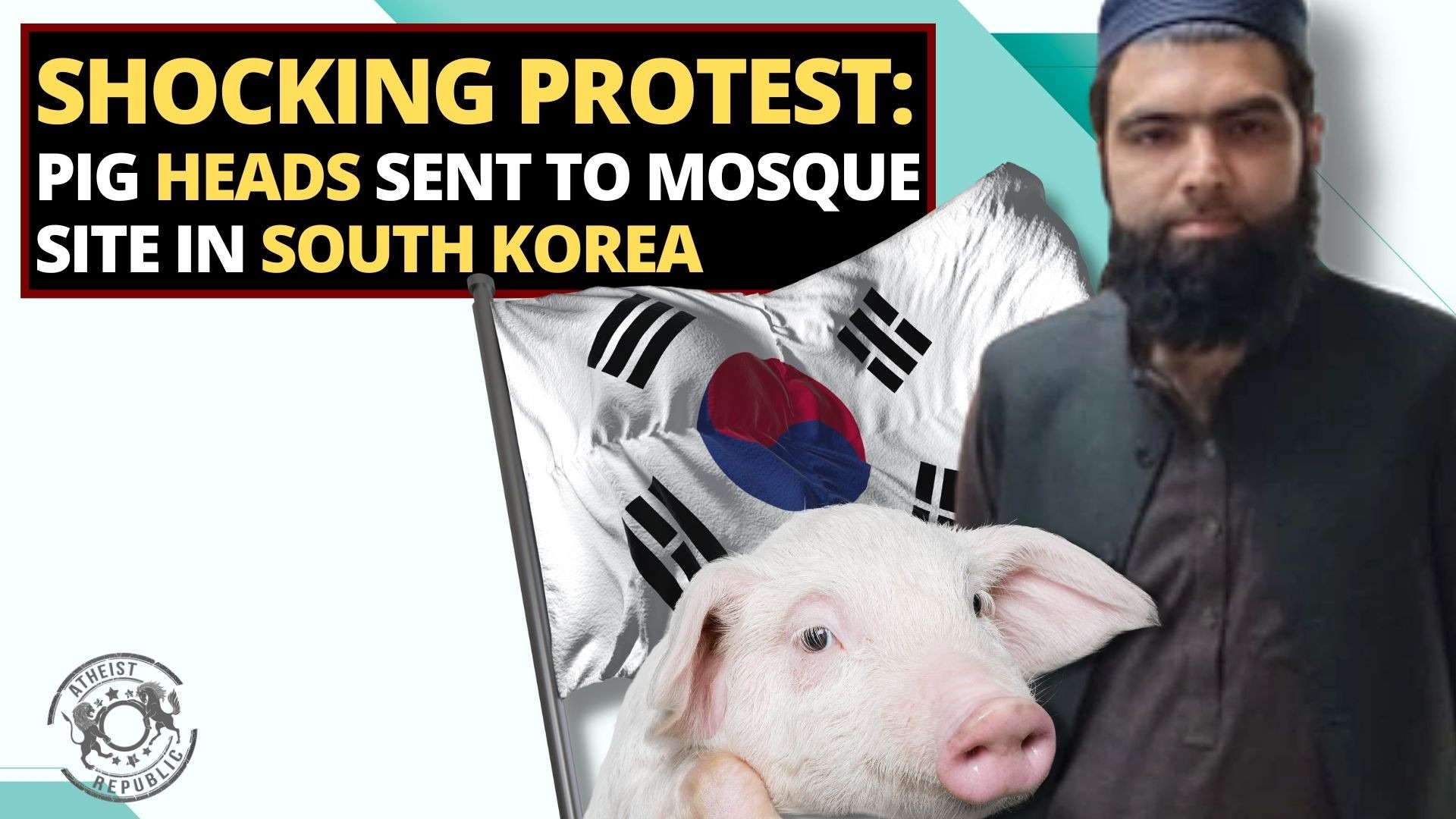
A mosque currently under construction in the South Korean city of Daegu has been a point of contention between residents and Muslim students of a local university. So much so that residents have put severed pig heads in front of the construction site in protest.
Pig heads, BBQs: Mosque backlash tests S Korea religious freedom https://t.co/KfkUOShUp8
— Al Jazeera English (@AJEnglish) May 21, 2023
The plan to build a mosque to accommodate the Muslim students of the city’s Kyungpook National University (KNU) initially began in September 2020, when they received permission from the local district office to construct a mosque in a neighborhood near the university.
The need to build a mosque for the Muslim student community of KNU became apparent as the community grew in recent years. Initially, they bought and used an old house a few minutes from the university’s west gate. The house, called Dar ul Emaan Kyungpook Islamic Center, became too old and small for the growing Muslim student community.
However, residents near the site of the planned mosque fiercely protested against it, filing a petition and claiming that the mosque would turn their neighborhood into a “slum.” Unfortunately for the students, the local district office of Daegu ordered the mosque's construction to be suspended, citing concerns from the residents.
Locals in Daegu, South Korea place pig heads and barbecues outside of mosque construction site.
This is the third incident from a string of Islamophobic attacks the mosque has faced within the last few months. pic.twitter.com/0u8s9OcTGV— Muslim (@Muslim) January 1, 2023
These developments shocked KNU’s Muslim student community, which fluctuates between 80 and 150 people and hails from countries with significant Muslim populations, such as Nigeria, Pakistan, and Bangladesh. They were surprised to receive opposition from the residents as they did not resist when they established their Islamic center and used it for seven years.
South Korea’s Supreme Court annulled the orders from the local district office and allowed the mosque project to continue. But as the construction of the building resumed, residents intensified their campaign against the mosque and the KNU Muslim student community by first spreading anti-Muslim messages around the area.
They need proper education and tabling on Islam. I am sure Koreans would love to be Muslims and they would come in hoards once they get it. So I am not so worried cus Koreans aren't violent like the Westerners
— CURSED (@ProjectTitans1) January 1, 2023
"Islamophobic pamphlets were distributed throughout the area, and rallies targeting our religion, Islam, were held," Muaz Razaq, a Pakistani Ph.D. student who also serves as the KNU Muslim community’s media representative, said in a media conference last April.
Messages such as "Muslims who kill people brutally and behead them, get out of this area right now” written in English and "Not all Muslims are terrorists, but all terrorists are Muslim” in Korean were seen near the building site.
May Allah guide South Koreans to Islam
— Birdzilla (@birdeavor) January 1, 2023
It didn’t end with anti-Muslim banners and placards. Last October, a severed pig head appeared in front of the construction site, which Razaq described as a “disappointing moment” for the community. A committee hosted a pork barbecue party near the site. Soon, a tall display refrigerator with three severed pig heads was placed in front of the construction site.
Islam is the greatest Islam in the world, there is and will never be any pagans
— Muhammad Raju (@Muhamma65474078) January 2, 2023
Because Islamic law does not allow pork consumption, pork meat and severed pig heads have been used as symbols of anti-Muslim hate worldwide, including in the United States.
This tension poses a challenge for South Korea, which has been experiencing a demographic crisis and has seen immigration as a solution to this problem. But as the country continues to receive immigrants from various parts of the world, issues like the one in Daegu show how the largely mono-ethnic East Asian country is poorly prepared to face an increasingly multicultural reality.
